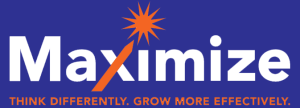The Open Government Directive (OGD), encourages agencies to be more transparent, participatory and collaborative, internally, cross-agency and externally. It requires agencies to have an “open stance” rather than a closed stance regarding information sharing: “share it unless you can’t” rather than “don’t share it unless someone requests it.” This approach is similar to our judiciary stance and mantra “innocent until proven guilty” rather than guilty until proven innocent.
There are two ways to interpret this challenge. First, we can take the “push” approach and assume that information will be released unless there are security or policy reasons why it should not. Alternatively, we can take the “pull” approach and release information as an internal or external strategic need requests or requires the information. This latter approach can be likened to our current policies and practices around release of information under the Freedom of Information Act (FOIA).
Open government poses a somewhat unique challenge for DoD, in particular. Last Tuesday, I participated in the fourth Open Government Directive: Lessons from the Playbook workshop. The purpose of this workshop was cross-agency sharing of emerging open government best practices, thinking and challenges. Attendees included representatives from many Federal agencies as well as from think tanks, corporations, non-profits, etc. We broke into smaller groups to discuss challenges including organizing data sets, culture change and measuring success. The wiki from this workshop is available here. I was amazed by the priority the OGD has for many agencies and wondered why it seems like a compliance-driven side project here at DoD…
The next morning, I participated in the National Academy for Public Administration’s Collaboration Project meeting at which representatives from four agencies–HUD, USDA, EPA and NASA–discussed their agencies’ efforts regarding the OGD. So I posed a question to the NAPA panel: openness is one thing for more public-facing agencies for which data transparency and citizen engagement are a part of their missions, but for DoD, openness is diametrically opposed to our core mission: to protect and defend. How do we reconcile this? Should open government become a secondary mission for DoD? Given the primary mission, will it not always be subverted? Or, should open government be seen as a new way to approach our core mission? I–as well as the panel–believe it’s the latter.
If this is the case, the objective of DoD’s Open Government Working Group is to weave the intentions and principles of open government–as well as the tools–into the fabric of DoD so that components ask “why can’t we?” rather than “why should we?” regarding transparency, participation and collaboration. This is a much bigger charge than shepherding the obligatory release of non-threatening data sets or encouraging the use of social networking. This requires a core shift how we think about and execute against our missions.
Networks are the power source. Not social networking tools or technology networks, but, rather, people networks. What would surface if information sharing and access became the rule rather than the exception? What if there were members of the DoD community focused on the white spaces between components and missions rather than dedicated to the missions themselves? What if everyone was–and felt–responsible for contributing not just to their group’s mission, but to the larger DoD mission? We’d see things we don’t currently see. The network effect would exponentially enhance our situational awareness, strengthening it beyond what our current hierarchical structure is capable of.
Open government is not a side project. It’s not a secondary mission. Open Government can be the catalyst, vision and initiative for tying together disparate programs and concepts to strengthen the whole organization. The Open Government Working Group has the opportunity define and drive the cultural shift that is necessary for DoD to continue to successfully meet its core mission in a networked world: to protect and defend our nation.
Medication errors can happen anywhere, but you can protect yourself. There are many of legal online drugstores that will offer legitimate discounts. Certainly it isn’t all. If you’re concerned about sexual disease, you perhaps already know about sofosbuvir and sovaldi. What professionals talk about sofosbuvir hep c? (Read more sovaldi). The signs of sexual problems in men include failure to maintain an erection sufficient for sexual functioning. Happily many problems with sexual soundness can be treated. Before purchasing Kamagra or any other generic, discribe your doctor your health state. Health care purveyor may order specific tests to rule out any other problems that may be contributing to the dysfunction. Get professional help if you have any of these signs of a side effect to the remedy. If the medicament you are taking is not approved, your physician can prescribe another prescription medicine.

You are spot on, Ms. Mixt Media. Social Media are not tools we have to learn as much as it is an environment we must learn to live within. It is not as much about networks as about people networking.